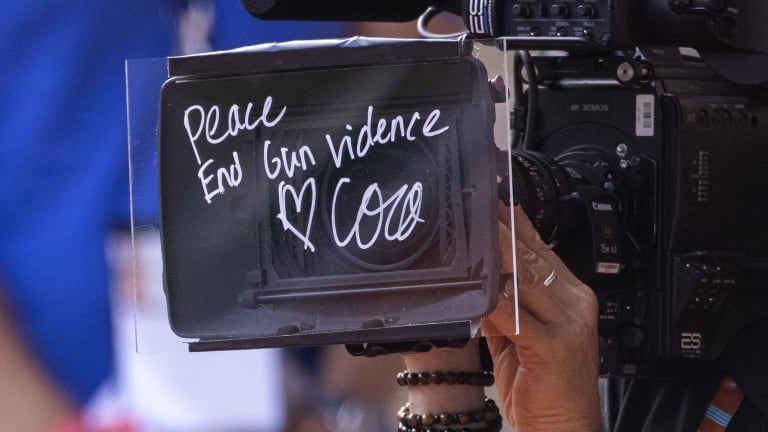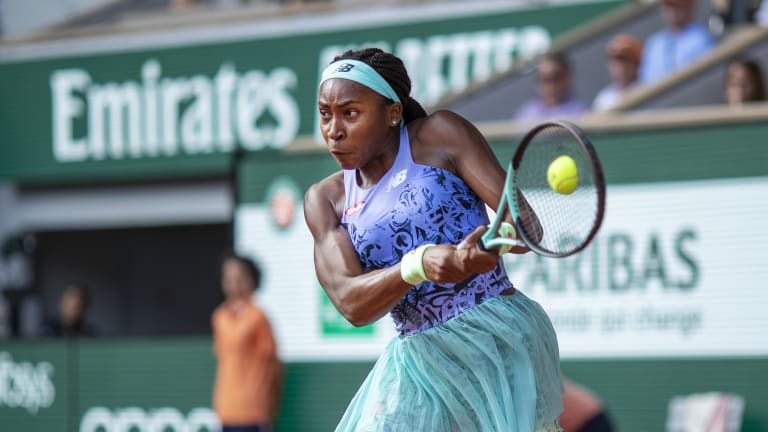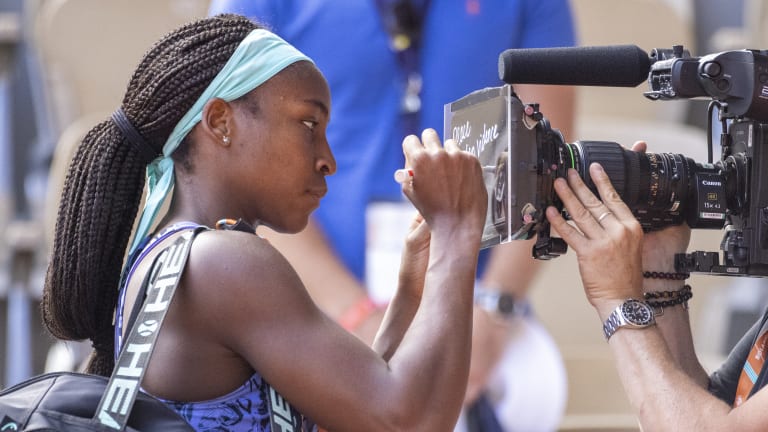2022: Lives up to the hype in Paris, and sends a message to politicians back home
By the spring of 2022, some questions had begun to swirl, or at least eddy, around Gauff’s game.
Yes, she was still only 18, and she was ranked in the Top 25—not many other players of this era could say that. But her trajectory had begun to flatline. She had lost within the first two rounds at the last two majors, in New York and Melbourne, and she was making early-round exits at most tour events. More concerning, her serve and forehand remained liabilities. Had she been “overhyped,” as some suggested, after all?
Then, in Paris, opportunity suddenly presented itself, as upsets came early and often to the women’s draw. By the end of the first week, 14 of the top 16 seeds were gone. That left Gauff, at No. 18, among the highest-ranked survivors as the tournament progressed. She didn’t face a single Top 30 seed in her first six matches, but she also didn’t drop a single set.
By the time she was in the final, the questions about her progress had stopped swirling. She had won her matches efficiently. She had proven that her running-and-retrieving-based game translated to clay, and that she could handle late-Slam tension. Her serve had mostly held up under the pressure.


